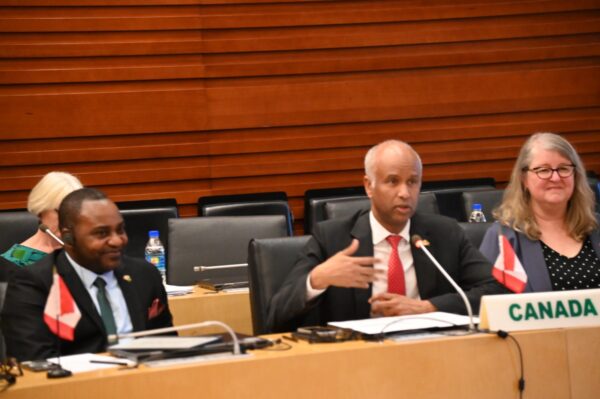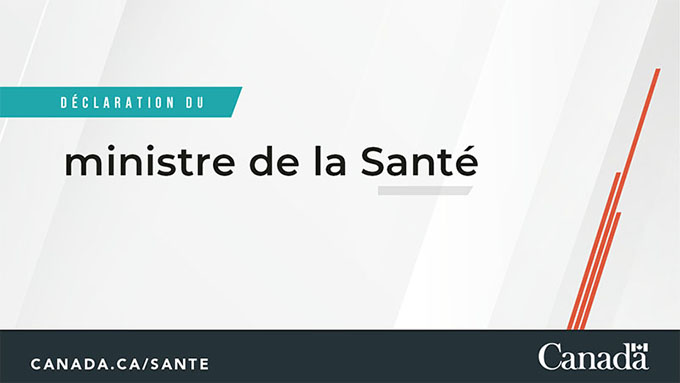OTTAWA – People fleeing the Gaza Strip need help accessing mental health care and housing, as well as support for other family members fleeing the besieged Palestinian territory, the Canadian Council for Refugees said Thursday.
The slow flow of people admitted from Gaza through the tightly controlled Rafah border crossing has so far put 107 people on Canada's list of planned evacuees, and they are only allowed to stay in Egypt for 72 hours.
The list includes Canadian citizens and permanent residents, as well as eligible family members who do not have immigration status in Canada.
Some of the first Canadians to escape the constant bombardment in Gaza arrived at Toronto's Pearson International Airport on Thursday.
“They will definitely need support and education after going through a very traumatic period,” said Gauri Sreenivasan, co-chief executive of the council.
For those arriving without immigration status, it will be particularly important to ensure they have access to processing services tailored to the trauma they experienced last month, Ms. Sreenivasan said.
“This includes the need for support to find out what they need in terms of housing and support for work permits,” she said.
“They particularly need information and support to manage the necessary administrative formalities for both themselves and other family members,” Ms. Sreenivasan added.
Reuniting families outside Gaza will be key to preparing them for success in Canada, she said.
According to Minister Miller, a temporary status
Immigration Minister Marc Miller said immigration status and support services available to evacuees fleeing Gaza must be determined based on individual circumstances once people arrive in Canada.
The federal government is working to ensure the safe passage of hundreds of people with ties to Canada as part of ongoing negotiations between Israel and Egypt mediated by Qatar.
Global Affairs Canada also says it is aware of reports that four Canadian citizens were able to escape with the help of a third party.
Miller says family members without Canadian citizenship or permanent resident status will be offered temporary status to remain in Canada, and if they need a work permit, his department will work on that too.
“I think it’s something we’ll approach on a case-by-case basis,” he said in an interview Monday.
People coming to Canada as family members should be able to apply for permanent residency under the family reunification immigration program, Sreenivasan said.
Regarding settlement services and income support, Miller said new arrivals from Gaza rely on their Canadian families. From there, immigration will assess your needs.
“We need to look at what that means and what the volume is,” he said.
“I don’t know the financial situation of many people who leave. I can’t assume it’s great, but I also don’t assume people don’t have money,” he added.
The Gaza Strip has been under near-constant bombardment since Israel launched a retaliatory attack against Hamas following the Oct. 7 attack that killed 1,400 Israelis. Another 240 people were taken from Israel to Gaza by the armed militant group.
The number of Palestinians killed in the war has exceeded 10,500, including more than 4,300 children, the Hamas-run health ministry in the Gaza Strip said on Wednesday.
While the border remains completely closed for now to most of the occupied territory's 2.3 million residents, Canadian immigration officials have not yet considered the possibility of accepting refugees from the region.
“There are a number of safety and policy considerations that require us to focus on Canadians. We want to get Canadians out,” Mr. Miller said.
But he added that Canada would be humane if its people managed to escape the war and flee to its borders.
The Canadian Refugee Council said the need to get Canadians out should be accompanied by much stronger diplomatic action from Canada to demand a ceasefire.
“There is no security for those who try to enter or leave Gaza, nor for those who remain there,” Ms. Sreenivasan said.
“It is extremely urgent that Canada become much more formal and call for not just a pause but also a permanent ceasefire to end attacks on civilians,” she added.
Prime Minister Justin Trudeau and other government officials have not called for a ceasefire in Gaza, but have instead called for significant “humanitarian pauses” long enough to deliver aid to Gaza and evacuate civilians from the region.
Israel has agreed to implement four-hour daily humanitarian pauses in its attack on Hamas in northern Gaza, the White House announced Thursday.
Miller said once the Canadians leave Gaza, the next consideration will be whether the government should find a way to get the Canadians out of neighboring Lebanon.
Since the start of the war, there have been clashes between Israeli troops, Hezbollah fighters and their allies along the Israeli-Lebanese border for a month.
“That's the next set of considerations that I hope doesn't come to fruition because that would mean making the conflict worse,” Mr. Miller said.
Meanwhile, refugee advocates encouraged immigration officials to speed up the processing of refugee claims already underway from Palestinians and others from the region.
– With information from The Associated Press.

Award-winning entrepreneur. Baconaholic. Food advocate. Wannabe beer maven. Twitter ninja.





